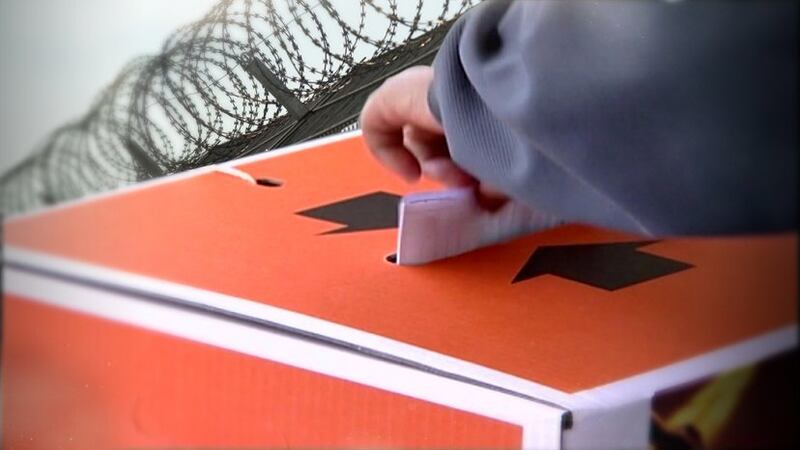Public submissions are being called for the Electoral (Registration of Sentenced Prisoners) Amendment Bill. The bill would allow prisoners with sentences shorter than three years to enrol to vote.
The National-led government changed the Electoral Act in 2010 so that no prisoner in New Zealand can vote in a national election. Before 2010, only those prisoners serving a sentence of fewer than three years could.
Māori account for 51.8% of the prison population, according to 2019 statistics by the Department of Corrections.
Julia Amua Whaipooti of Ngāti Porou is a member of the Independent Justice Advisory Group, board member and spokesperson for criminal justice advocacy group JustSpeak and senior advisor at the Office of the Children's Commissioner. Whaipooti says taking away prisoners ability to vote is a breach of human rights.
"The removal of the right for people in prison to vote is a fundamental breach of human rights for all citizens, Māori me tauiwi (and European), and we've heard that from the highest court in New Zealand the Supreme Court. It's only now that the Government has decided to act on that, to a certain extent," Whaipooti says.
The Ministry of Justice released a Regulatory Impact Assessment (RIA) on prisoner voting which states that, "The Supreme Court has found that the disqualification places an unreasonable limit on the electoral rights guaranteed under the New Zealand Bill of Rights Act 1990 (NZBORA). The Waitangi Tribunal (the Tribunal) also found in its recent report He Aha I Pērā Ai? The Maori Prisoners' Voting Report that the disqualification was a serious Treaty of Waitangi breach and has a disproportionate effect on Māori. The disqualification has been shown to act like a de facto permanent disenfranchisement, as many people affected are not re-enrolling once leaving prison."
The new bill would technically reverse the amendment made by the 2010 National-led Government, allowing prisoners with sentences shorter than three years to enrol to vote.
The three-year prison sentence rule is arbitrary, Whaipooti says, "There's no rationale, no purpose, and it remains a fundamental breach of human rights and Crown obligations to Te Tiriti. Every person over the age of 18 has the right to vote and participate."
The bill also seeks to:
* Set up the process for getting other prisoners onto the electoral roll when they are released, so they can then participate in elections
* Requires prisons to engage with prisoners about the option to register as a voter. This would happen either when they are due to be released from a sentence of three years or more, or if they are serving a sentence less than three years long
* Provide for certain prisoners' details to be entered into the "unpublished" electoral roll. This option would be available to prisoners who believed that their safety, or that of their family, would be at risk of their details were in a publicly available electoral roll
National MP Nick Smith, who sits on the Justice Select Committee, has criticised the Government for rushing the legislation through before elections, "Their preservation, because they think there might be, a few more thousand votes, from prisoners voting for them, is a priority for them, over either respect for conventions around electoral law or for that matter other issues that should be a priority."
In terms of functionality and feasibility, Whaipooti says, "People who are in prison are a captured audience. You have the ability to work through the process that's needed, you would expect corrections to be able to carry that out in conjunction with the electoral commission."
The Justice Committee today held a hearing of evidence that was live-streamed to their Facebook page.
The closing date for submissions is Friday, 24 April 2020.

